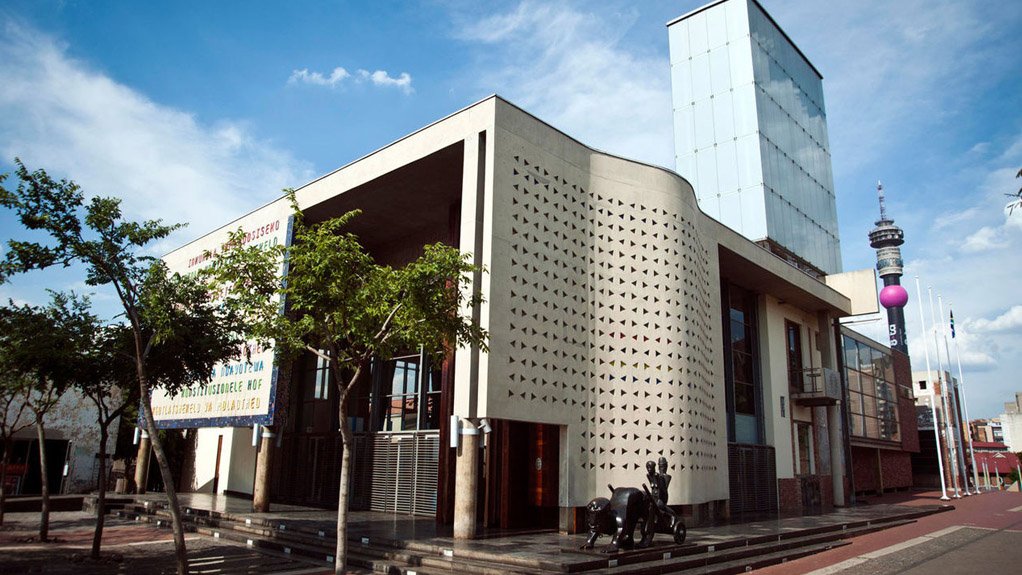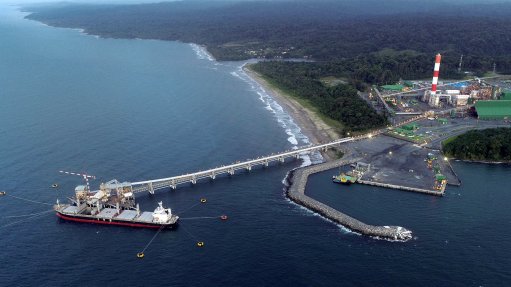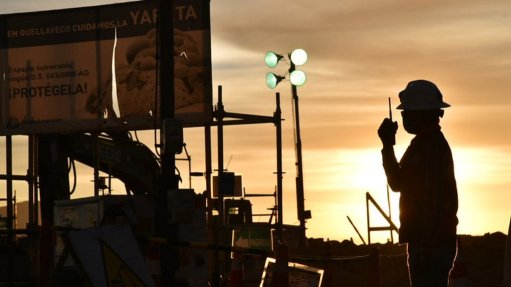Constitutional process preservation overshadows clarity of Bill



WARREN BEECH Regulatory uncertainty remains one of the key factors taken into account by investors
FINAL ARBITER While the Mineral Resources Minister announced in 2016 that the Mineral and Petroleum Resource Development Act Bill would be progressed, the Minister is constrained by the constitutional processes
It is preferable that constitutional processes be carried out properly when Bills are passed into law to avoid their subsequently being challenged in court, says law firm Hogan Lovells, responding to calls for expediency in terms of the Mineral and Petroleum Resources Development Act (MPRDA) Amendment Bill.
Outlining the current state of affairs regarding the MPRDA Amendment Bill, Hogan Lovells partner and mining head Warren Beech says the Bill was first published for comment in December 2012. In 2014, Parliament passed the Bill and referred it to the President for approval.
“As a result of concerns raised by stakeholders, the President referred the Bill back to Parliament in 2015 for reconsideration,” Beech says. On November 1, 2016, the National Assembly (NA) debated the MPRDA Amendment Bill and subsequently passed the Bill.
“Normally, when a Bill is passed by the NA, the National Council of Provinces (NCOP) can either pass the Bill in its entirety, pass the Bill subject to amendments proposed by the NCOP or reject the Bill in its entirety.”
Beech adds that, if the NCOP passes a Bill without proposed amendments, the Bill must be submitted to the President for assent. If the NCOP passes the Bill subject to proposed amendments or rejects the Bill, it must be returned to the NA for further consideration.
If the NA then passes the Bill, it must then be submitted to the President. Once the President has assented to the Bill, it will be an Act of Parliament and will come into law and be enforceable on the date that has been promulgated in the Government Gazette.
Recent Developments
Beech explains that in November, the NA adopted the Portfolio Committee on Mineral Resources report on amendments to the Bill, in accordance with reservations raised by the President when he referred the Bill back to the NA in 2015, before it was placed before the NCOP.
Theoretically, the way forward was clear.
However, the matter had been complicated by the Constitutional Court (ConCourt) judgment in July in the matter of community-based organisation Land Access Movement of South Africa versus the NCOP Chairperson and Others, commonly referred to as the Land Access Judgment.
Beech says the judgment essentially dealt with the failure of the NCOP and some provincial legislatures to facilitate adequate public participation before passing an Amendment Act, as detailed in Section 72(1)(a) of the Constitution.
The ConCourt found that there were shortcomings in the manner in which the NCOP had considered the negotiation and final mandates of provincial legislatures. Beech notes that the court also found that the opinions expressed by the public at the provincial hearings did not filter through for proper consideration. “For this reason, the ConCourt held that the NCOP public participation process was unreasonable and, therefore, constitutionally invalid.”
He adds that the key aspects affirmed by the judgment are that public participation is a critical component of the constitutional process, and inputs received during the public participation process must be properly communicated and taken into account.
“The judgment makes it clear that Parliament must satisfy and discharge its obligation to facilitate public participation in accordance with Section 72(1)(a) of the Constitution before enacting a Bill into law.”
This ConCourt judgment was taken into account in the Portfolio Committee on Mineral Resources’ November report, which noted that the consultation period in the NCOP and provincial legislatures was too short, and recommended that the Select Committee on Land and Mineral Resources remedy the procedural defect by restarting the legislative process.
“As a result of the recommendation, all nine provincial legislatures have scheduled public hearings on the MPRDA Amendment Bill,” Beech states. Therefore, until these public hearings have been concluded – the final programme of which has not yet been published, he notes – the process cannot be concluded.
While the Mineral Resources Minister publically announced in February 2016 that the MPRDA Amendment Bill would be progressed, the Minister is constrained by the constitutional processes, Beech notes.
“Regulatory uncertainty remains one of the key factors taken into account by investors in relation to the MPRDA Amendment Bill. However, in our view, it is preferable for the constitutional processes to be carried out properly and thoroughly and the process should not be rushed.”
Hogan Lovells, therefore, recommends that, following various judgments, including the Land Access Judgment, and the threat presented by cases that have been brought by various role-players, all stakeholders should exercise caution and follow the required processes to ensure that constitutionally valid legislation is passed.
“With all legislation, there is a process that needs to be followed within the constitutional framework. This process cannot be rushed. We are often quick to criticise government, but there is a need for a fine balancing act and proper, in-depth consultation and engagement with all stakeholders before legislation is enacted,” Beech stresses.
Mining Indaba
Beech notes that the Mining Indaba provides an opportunity to engage with a range of stakeholders at all levels of the sector on aspects of concern to the industry. “It is for this reason that Hogan Lovells has participated . . . and will do so again in 2017. We expect a substantial contingent from our South African, US and London offices in support of our commitment as an adviser to the industry.
“Our focus at the event is to interact with our existing clients to identify how we can provide better service in a more efficient and cost-effective manner. We have, therefore, decided to focus on smaller, targeted functions and interactions rather than exhibiting at the Mining Indaba itself.”
Comments
Press Office
Announcements
What's On
Subscribe to improve your user experience...
Option 1 (equivalent of R125 a month):
Receive a weekly copy of Creamer Media's Engineering News & Mining Weekly magazine
(print copy for those in South Africa and e-magazine for those outside of South Africa)
Receive daily email newsletters
Access to full search results
Access archive of magazine back copies
Access to Projects in Progress
Access to ONE Research Report of your choice in PDF format
Option 2 (equivalent of R375 a month):
All benefits from Option 1
PLUS
Access to Creamer Media's Research Channel Africa for ALL Research Reports, in PDF format, on various industrial and mining sectors
including Electricity; Water; Energy Transition; Hydrogen; Roads, Rail and Ports; Coal; Gold; Platinum; Battery Metals; etc.
Already a subscriber?
Forgotten your password?
Receive weekly copy of Creamer Media's Engineering News & Mining Weekly magazine (print copy for those in South Africa and e-magazine for those outside of South Africa)
➕
Recieve daily email newsletters
➕
Access to full search results
➕
Access archive of magazine back copies
➕
Access to Projects in Progress
➕
Access to ONE Research Report of your choice in PDF format
RESEARCH CHANNEL AFRICA
R4500 (equivalent of R375 a month)
SUBSCRIBEAll benefits from Option 1
➕
Access to Creamer Media's Research Channel Africa for ALL Research Reports on various industrial and mining sectors, in PDF format, including on:
Electricity
➕
Water
➕
Energy Transition
➕
Hydrogen
➕
Roads, Rail and Ports
➕
Coal
➕
Gold
➕
Platinum
➕
Battery Metals
➕
etc.
Receive all benefits from Option 1 or Option 2 delivered to numerous people at your company
➕
Multiple User names and Passwords for simultaneous log-ins
➕
Intranet integration access to all in your organisation




















